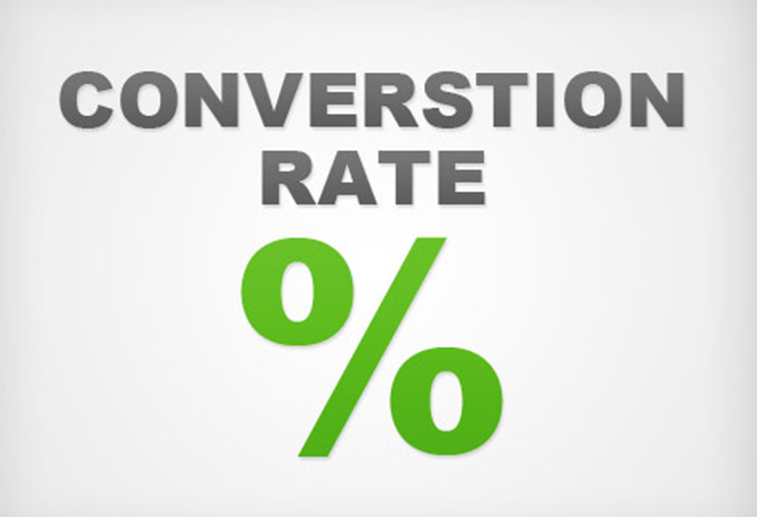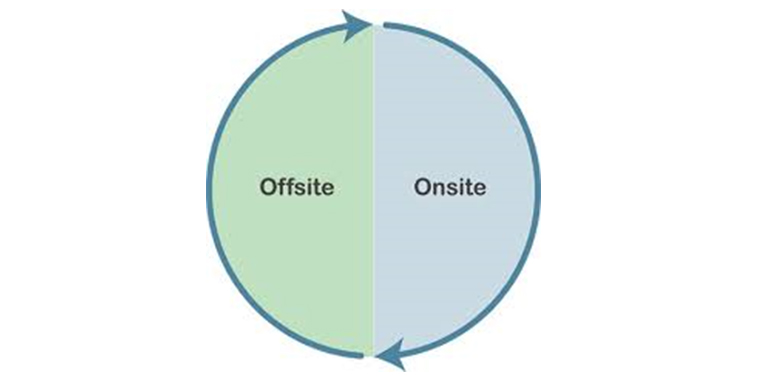Top 7 Reasons Why SEO Is Important for Your Business Website

What is SEO?
SEO stands for Search Engine Optimization. It is a strategy, a technique, or a process designed to increase traffic to your website. Its purpose is to attract online visitors to visit your website by increasing your rank on search engines such as Yahoo, Bing, or Google.
See, most of us when we search online, we don’t usually go to the next page of Google. Ideally, when we browse the internet, websites that appear on the first page of Google are the ones we’re going to click on.
For a business owner who has a company website, SEO becomes one of the greatest assets you can utilize. Preferably, you want people to visit your site to increase your online exposure, thus increasing your conversion rate— online visitors converted into paying customers.
But of course it shouldn’t end there. Just because an online visitor goes to your website, it doesn’t mean he will scan through your entire site. There are two types of traffic:
- Quality of traffic. You want to entice your visitors to buy your products and services. They can visit your site, but if they are not interested in what you are offering, they will leave your site instantly. So a good quality traffic attracts visitors to stay on your website and possibly purchase one of your products or inquire about your services. They went to your site because they were generally interested with what you are offering not because they accidentally clicked on your banner ads.
- Quantity of traffic. If you are targeting the right online visitors, you can then measure your site’s performance through the quantity of your visitors.
How SEO works?
Google “crawls” the entire World Wide Web. Crawling is just a technical term that means relevant information online or relevant websites are examined in order of importance depending on what a particular user is searching online. For instance, if you want to search for web development firms in the Philippines, through crawling, Google can provide you a list of these companies in order of their performance, their website content, and their popularity online. This information is stored in massive databases where Google can quickly access once an online user perform a search query. To simplify, search engines are answering machines. They provide a comprehensive list of information readily available online for someone who needs it.
But, how does Google determine relevancy of a website?
Google employs mathematical calculation known as algorithms that can determine the relevancy of a site. Over the years Google has introduced two different algorithms known as:
- Google Panda. Introduced in 2011, it refers to Google’s search results ranking, designed to lower the rank of websites with low quality contents and increase those with high quality contents.
- Google Penguin. Introduced a year later, this new algorithm targeted websites that violated Google’s Webmaster Guidelines.
There are many factors that affect SEO including website content, inbound and outbound links, website relevancy, keywords, title tags, and many more. Through Google’s search algorithms these factors can impact your rank on search engines.
Two components of SEO
-
On Site SEO or On page
It refers to various techniques or settings you can apply on your website to increase your rank such as:
- URL structure
- Content quality and relevancy
- Simple and user friendly navigation
- Working internal and external links
- Optimized images and proper use of ALT tags
- Website speed load
-
Off Site SEO or Off page
It refers to outside activities that will affect your website’s rank. Off page SEO mostly relies on link building commonly known as backlinks. Backlinks or inbound links are links that when a visitor clicks, will direct him to your website. Usually these links come from another site, citing your website. For instance, there’s a website talking about backlinks, if he decides to link his article to your blog about SEO, then your website will increase its rank in search engines. Of course, these links should be relevant to your site. The number of backlinks any website receives is an important factor that will affect your website rank. One reason why backlinks are so important is that it also attracts more online visitors to go to your site. Your website is somehow connected to other websites related to yours, thereby increasing your online visitors.
With all this information above, SEO becomes a vital part of your website’s success, especially if you own a company website. Below is a comprehensive list of why your business website needs SEO:
-
SEO increases sales inquiries

Through SEO, you can increase your website’s popularity online. Most visitors online will trust websites that appear on the first page of Google. If your website appears on the first page, chances are online visitors will visit your site. But of course, it shouldn’t stop there. A visitor must stay for a longer period of time in your site to be able to fully grasp what your company is all about. Once you grab the attention of your potential customers, soon inquiries will come pouring in, and customers will start sending inquiries to your site. It all boils down to content. If your website content is able to wow and attract your online visitors, there will be an increase in your sales inquiries to learn more about what your company is offering.
-
SEO is cost-effective

SEO allows your websites to rank high on search engines through keywords or a particular term. For instance, in a web development company, you would want to optimize keywords such as web development firm in the Philippines. Through these keywords, when online visitors search for web development firms, there’s a high chance that they will find your site on the first page. Although there are many factors to consider, optimizing keywords is one of the best factors that can contribute to your site’s rank.
Because SEO only requires research, when it comes to it, companies won’t have to spend much money. Learn what your customers are looking for and learn what specific keywords they type in search engines to be able to maximize your website contents using popular keywords. While there are many online software that identifies popular keywords for your company, doing an extensive research by yourself will be cost effective on your part.
-
SEO increases your site’s credibility online

As a business owner, it is important that you keep your website content updated. You can incorporate rich keywords on your content but your main goal is to inform your online visitors. Utilizing those keywords will help increase your rank in Google. While you may appear on the first page of Google, you must keep in mind that your company’s credibility lies in the information you dish out on your online viewers. Subconsciously, people will be able to trust your company if your site appears on the first page. Because you are utilizing SEO techniques, through this you can increase your credibility; people will start to trust your site.
Also, another way to improve your credibility online is through testimonials or success indicators. Because most people rely on reviews, chances are they will view other sites before they can make an informed decision about yours. By adding testimonials, awards, and recognition on your site, you can also increase your online visitors’ reliability to your company.
-
SEO increases your conversion rate

Conversion rate refers to online visitors who are converted into paying customers. An effective website contains a compelling content equipped with call to action buttons that will elicit a desired response from your customers. Your content must answer to the needs of your online viewers. SEO allows your website to rank high on search engines if you have good and high quality content. Failing to do so will affect your rank. Again, it all boils down to content. While content alone won’t work, your website must also relate to its overall design layout. Your website must not only provide information, it must also provide a great excellent user experience. Through this, you can increase your conversion rate simply because your customers had a great time with your site and were able to get all the information they need.
-
SEO increases return on investments

Optimizing your web pages is a rewarding venture. While it doesn’t cost much, you can reap high earnings from your increased conversion rates. Because your company website is practically visible on the first page of Google, online customers will immediately flock to your site. And because you have good, high quality contents, you attract them to browse through your entire site.
-
SEO increases your traffic
 It’s important to note that while you appear on the first page of Google, few online visitors will stay on your site. As mentioned in the first part of this article, you want to attract quality traffic. Visitors who are generally interested in your company and products you sell. Showcase your company profile with proper information and descriptions to fully answer your customer needs.
It’s important to note that while you appear on the first page of Google, few online visitors will stay on your site. As mentioned in the first part of this article, you want to attract quality traffic. Visitors who are generally interested in your company and products you sell. Showcase your company profile with proper information and descriptions to fully answer your customer needs. -
SEO measures your site’s performance

Through SEO you can measure your site’s performance in terms of ranks, conversions, and traffic. All these are key performance indicators that will allow you to measure your site’s performance online.
- Ranking. Through keyword ranking you can analyze which keywords best fit your website, thereby you can adjust or alter your SEO strategy. Because the market demands change, keywords also change. Identifying the best keywords that will affect your site performance will greatly impact your rank.
But how do you determine which keywords would work best?
There are many tools that will identify which keywords to use for your site. But you can also do your own research. Ask yourself, which keywords online users would normally type on search engines? Also determine whether keywords you are using are relevant to your site. But, it is important to know that, while you can utilize keywords, other websites might already be using those keywords. It’s hard to compete with them, especially if you are new to the industry. Understanding keyword competition is vital to your site’s SEO campaigns. Part of your research must include this.
- Conversions. Any form of action acted upon on your site is considered conversions from buying a product, subscribing to your monthly newsletter, or even filling out a form. Considered as one of the most valuable indicators of an effective SEO campaign, conversions will determine which particular keywords are attracting your conversions. While it is difficult to measure, there are many analytic programs online that will help you measure your conversion rates.
- Traffic. While increased traffic is a good thing, quality traffic is what’s more important when it comes to measuring your site’s performance. Through analytics, you can determine which particular page of your site is most visited or even how many visitors viewed your site for a particular day.
Analyzing these data are very important. It will help you determine which particular SEO campaign works and which doesn’t. It is important to equip your site with SEO tools that will help determine your site’s performance.

SEO becomes your ally when it comes to promoting your company website online. While others may think it’s dead, SEO has actually been improving considering Google always updates their algorithms. Because of today’s technology, SEO has shifted over to new and modern set of rules that will impact the way business owners formulate their SEO campaigns. Today, SEO favors mobile friendliness. Because most online users view websites on their smartphones as opposed to desktop computers, company websites should start equipping their sites with a responsive design.
To break it down, Google has improved in terms of identifying which sites rank better in terms of the following:
-
Keywords
While keywords are very important, in today’s SEO campaigns, users must also achieve an excellent user experience when visiting a site by getting the information they need. Clicks must satisfy user needs. Most, incorporate keywords in titles and headlines, unfortunately, Google has become smarter and is able to interpret intentions and meanings of a particular content.
-
User Experience
Google is now favoring sites that have an effective and excellent user experience design aimed to please and satisfy online visitors. Because articles with numbers in their titles are more likely to be visited by an online user due to its simplistic lists that are easily digestible, it doesn’t mean the article itself is meaningful. Google has become smarter in ways of identifying which information would contribute to an excellent user experience.
-
Mobile Friendly
As mentioned above, more and more online users visit websites via smartphones. Google has been tweaking its search algorithm that will favor mobile ready websites. With a mobile first feature, company owners should consider responsive layout to increase traffic and conversion on their sites.
Because technology changes, everything around it should be able to adapt in order to survive. While most think SEO doesn’t work anymore , it’s simply because these people are still applying old rules of SEO. Now that there are new rules, company owners should start utilizing these techniques to be able to keep up with the trend.
Do you have any other suggestions on why SEO still works? Comment your suggestions below!

